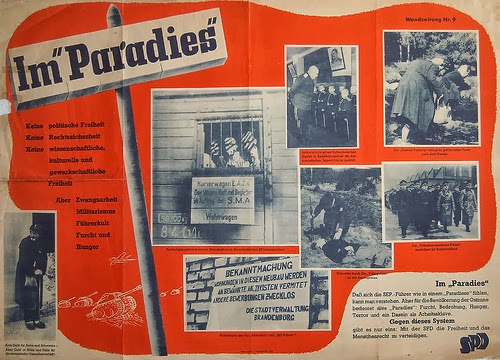On 9 September 2013, a red-green alliance led by the social democratic
Labour Party lost the Norwegian general elections. Only two weeks later, the
German Social Democrats (SPD) only came a poor second with just over 25 per cent
of the votes in their country’s general elections. Even if it ends up as thefor
junior partner in a grand coalition, the clear winner was the centre-right
Christian Democratic Party of Chancellor Angela Merkel, which missed only
narrowly an absolute majority in parliament. In this post, I will assess the
general situation of social democratic parties in industrialised countries and
speculate about their potential future role.
 |
| Photo by marza |
 |
| Photo by marza |
This clearly explains the Norwegian situation to a considerable extent. And yet, I am wondering whether the more fundamental reason is not that the social democratic project in general has run out of steam. At the beginning of the 20th century, the European left broke apart into social democrats, who emphasised the importance of reforming capitalism, and communists, who argued in favour of a revolutionary overthrow of capitalism. Thus, from the beginning social democracy was always the moderate version of working class policy. And yet, even the focus on reform, nonetheless, included at least initially the aspiration to go beyond capitalism towards socialism. The welfare state, now generally considered to be the main working class/social democratic achievement, had never been more than a compromise with capital (see Forget the welfare state?). In exchange for social policies, full employment and real wage increases social democrats had to accept capital’s control over the means of production. Instead of acknowledging, however, that the welfare state had been a compromise, in the course of the 1960s and 1970s social democratic parties adopted it as their main achievement and further improvements were implemented in a technocratic way. The former ambitions to overcome capitalism were forgotten and the parties became increasingly vulnerable to soft neo-liberal policies during the 1980s and 1990s, which were presented as offering better welfare results.
 |
| Photo by marza |
Asbjørn Wahl and Roy Pedersen are right, further social policy initiatives including new taxes on the rich or a social housing policy would have been possible. If put forward and mobilised around, the Norwegian Labour Party may have achieved a better result. It may even have been able to prevent electoral defeat, although the defeat was pretty decisive. Nevertheless, this would have only improved an already very good welfare state in Norway. It would have been a quantitative improvement. As I see it, however, this in itself is unlikely to transform social democracy into a fighting force with an alternative vision for the future. It would have been more of the same, but nothing qualitatively new. Perhaps, what is needed is a return to former ambitions of overcoming capitalism itself and move beyond the private ownership of the means of production? Unless social democracy can move beyond being the technocratic administrator of the ever more reduced welfare state, it is unlikely to be a significant force in the future.
Prof. Andreas Bieler
Professor of Political Economy
University of Nottingham/UK
Personal website: http://andreasbieler.net












No comments:
Post a Comment
Comments welcome!